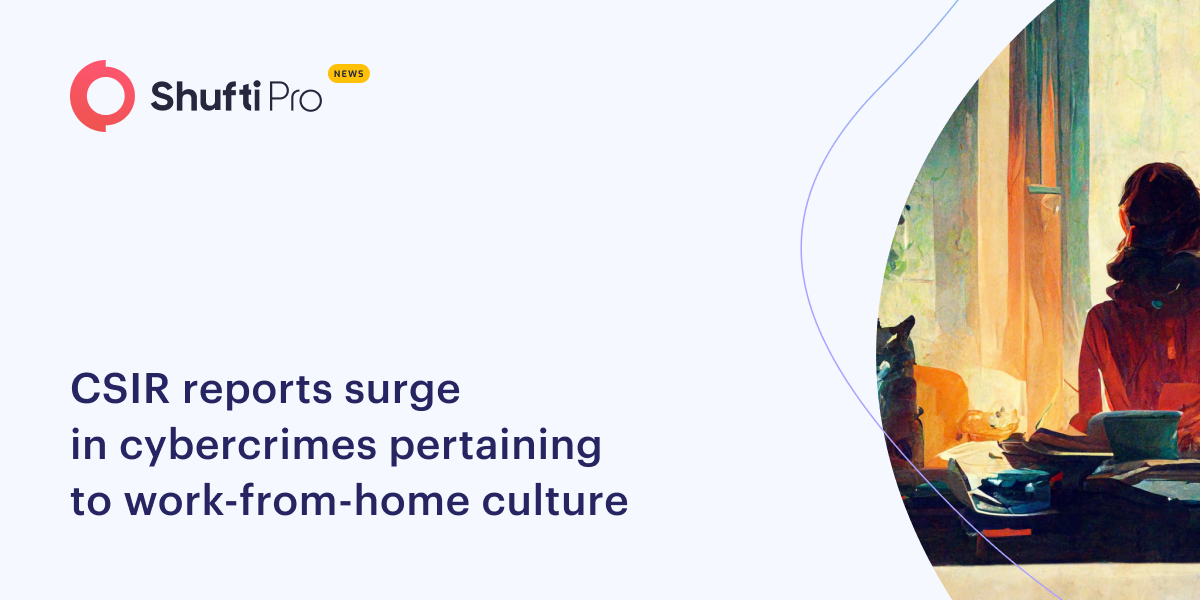News
FIAU Imposed a Fine of €130,000 on Olimp Limited for AML Failures
Olimp Limited has dropped its gaming license since FIAU imposed €130,000 fine on the company for ...
 Explore More
Explore More
News
Cryptocurrency criminals are lurking on Youtube
Cryptocurrency criminals are lurking on YouTube, a recent lawsuit filed by Apple co-founder Steve...
 Explore More
Explore More
News
U.S. SEC chair nominated to regulate crypto oversight
William Barr, United States Attorney General announced that President Trump is likely to task Jay...
 Explore More
Explore More
News
Japan: FSA Sets a Firm Deadline For FI to Ensure Full AML/CFT Compliance
Japan’s Financial Services Agency (FSA) has strictly directed financial institutions to devise a ...
 Explore More
Explore More
News
Ireland’s Central Bank Found Gaps in Anti-Money Laundering Compliance Practices
Ireland’s Central bank has found that certain financial firms are lacking in regards to anti-mone...
 Explore More
Explore More
News
France to Consider Amendment Obliging Crypto Firms to Obtain Licenses
In January 2023, the French Parliament will consider the amendment to cancel the favorable treatm...
 Explore More
Explore More
News
Two of Singapore’s Banking Giants Involved in Billion-Dollar Money Laundering Case
The two well-known banks in Singapore, Development Bank Singapore (DBS) and Overseas Chinese Bank...
 Explore More
Explore More
News
US Regulators Worried about the Rise in Synthetic Identity Fraud
Synthetic identity fraud, a financial crime in the USA, is on the rise. This has concerned the Un...
 Explore More
Explore More
News
ODJFS Makes Efforts Against Fraud Schemes, Calling for Improved Safeguards
The Ohio Department of Jobs and Family Services (ODJFS) has estimated that approximately $506 mil...
 Explore More
Explore More
News
Indian Brokers Under Investigation for Alleged Money Laundering and Identity Theft
Three of the most prominent brokers in the country have come under scrutiny from numerous regulat...
 Explore More
Explore More
News
EU Watchdog Takes Deep Dive Into Banks’ Use of Technology
EU’s banking watchdog has recognized the need for RegTech solutions and proper regulatory standar...
 Explore More
Explore More
News
FCA Fines Santander and Metro Bank for AML Compliance Gaps
The financial market regulator FCA has found compliance gaps in Anti Money Laundering (AML) syste...
 Explore More
Explore More
News
US Launches First Criminal Prosecution for Alleged Cryptocurrency Sanctions Case
Criminal charges are issued by the US Justice Department for the first time for transmitting more...
 Explore More
Explore More
News
Money Service Businesses Tighten AML/CFT Measures Amid Challenges
Microfinance firms, remittance services, and cambios have reported success in upgrading AML/CFT m...
 Explore More
Explore More
News
N26 Banned by Italian Central Bank for Insufficient Money Laundering Controls
The central bank of Italy has banned German digital bank N26 from onboarding Italian customers af...
 Explore More
Explore More
News
Binance in Trouble for Allegedly Aiding Money Laundering Worth $2.35 Billion
An inquiry into the world’s biggest crypto exchange Binance has revealed that it has aided money ...
 Explore More
Explore More
News
Brazil to Introduce Facial Recognition to Verify People Wearing Masks at Airports
Countries across the globe are taking necessary steps to introduce facial recognition at the airp...
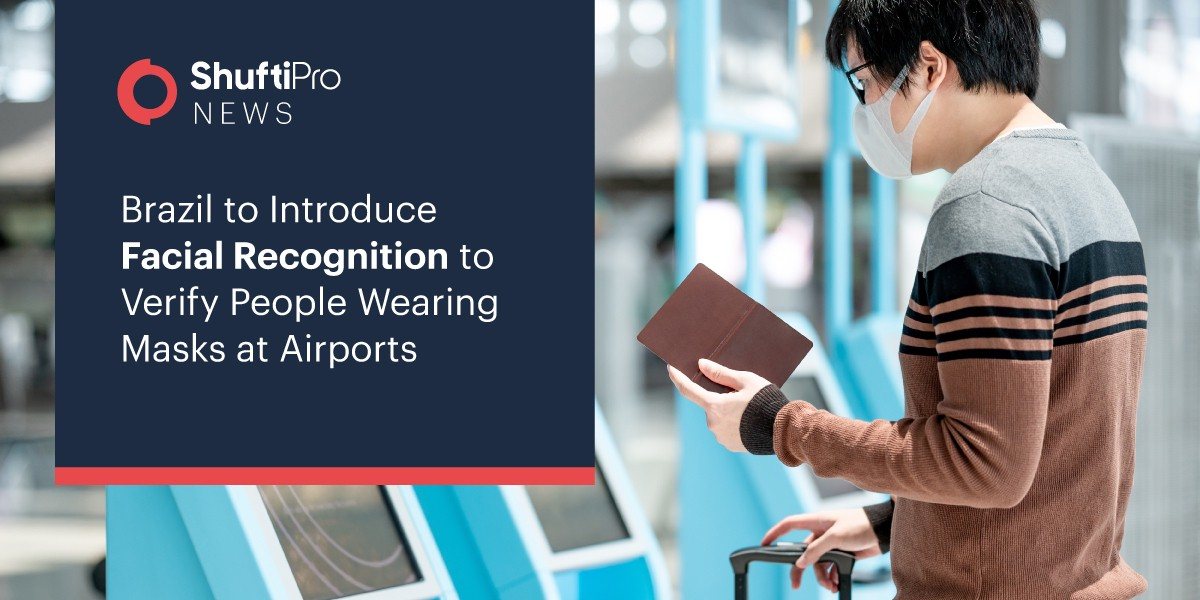 Explore More
Explore More
News
China’s Central Bank Fines ICBC & Bank of Chongqing for AML Shortcomings
Chinese banks including industrial and commercial banks of Chongqing have been fined by regulator...
 Explore More
Explore More
News
Half of Anti-malware Products fail to Recognize Notable Threats
According to a new report by SE labs, Most popular, well-established cybersecurity solutions do n...
 Explore More
Explore More
News
Latin America’s Private Investment Funds at Risk of Money Laundering
Private investment funds are exposed to money laundering as they contain a number of structural r...
 Explore More
Explore More
News
Tech Analysts Say Elgin Data Breach May Prove “Devastating” for Those Vulnerable to Identity Fraud
Technology experts raise questions about the lack of transparency of the municipality in dealing ...
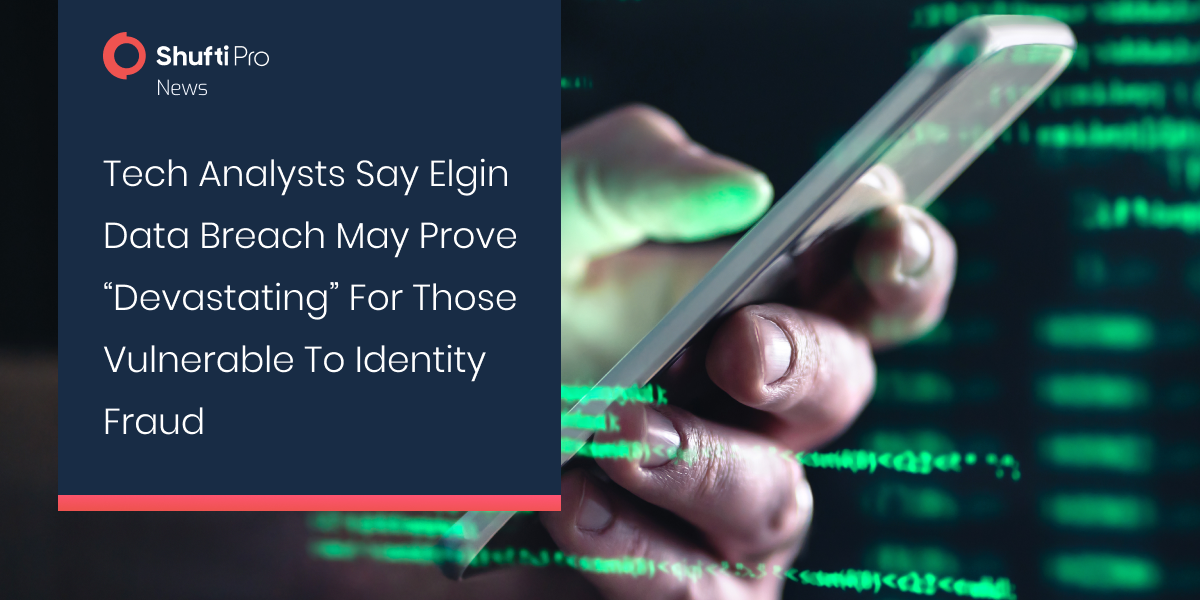 Explore More
Explore More
News
Investment Bank Fined by FCA for Failing with Due Diligence Requirements
An Investment Bank in London, Sapien Captial, has been penalised by the financial regulator, Fina...
 Explore More
Explore More
News
FCA Bans Crypto-Related Investments in the UK
Financial Conduct Authority- FCA had proposed a ban on crypto-related investments in October 2020...
 Explore More
Explore More
News
AUSTRAC Warns Banks Against Closing Accounts of Crypto Traders
AUSTRAC shows full support for the Australian crypto industry and is issuing warnings to banks ag...
 Explore More
Explore More
News
Philippine Senator Files an Anti-Online Gambling Bill Aiming to Curb Financial Crimes
Philippine Senator Joel Villanueva filed a bill imposing a ban on online gambling to prevent fina...
 Explore More
Explore More
News
US Court Sentences Nigerian FinTech Executives for Money Laundering Worth $167 Million
The US Court jails the Fintech Executives of Nigeria over a Money Laundering Case comprising $167...
 Explore More
Explore More
News
Singapore replaces passwords and ID documents with facial recognition systems
As reported by Strait Times, Singapore plans to replace passwords and identity documents with bio...
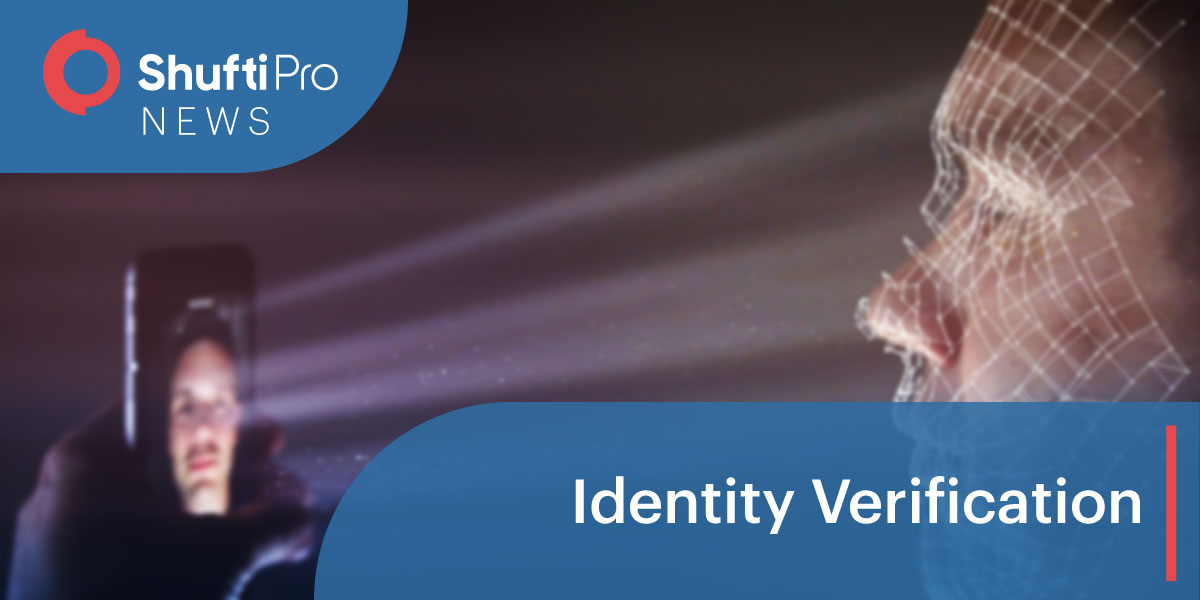 Explore More
Explore More
News
Fake NFT Sold for £244k from Artist “Banksy’s” Website
A fake link directed bidders to an online auction for Banksy’s NFT, which was posted on the now-d...
 Explore More
Explore More
News
GIABA to Release Liberia’s AML and CFT Compliance Evaluation Report
The GIABA has finally released its findings about Liberia’s gains and challenges in the fight aga...
 Explore More
Explore More
News
Pandemic Fraud Crackdown: US Bank Employees Indicted Over Document Fraud
Bank employees and tax preparers fraudulently applied for $3M+ in pandemic relief loans through f...
 Explore More
Explore More
News
Compliance Institute of Nigeria (CIN) to Up its Game in Addressing AML/CTF Gaps
With threats of financial fraud emerging across the globe, the Compliance Institute of Nigeria (C...
 Explore More
Explore More
News
FATF Urges Japan to Implement Stronger AML Measures
The FATF mutual evaluation report on Japan proposes the formation of a joint-agency body to enhan...
 Explore More
Explore More
News
Russian Sanctions Put Switzerland in a Tough Spot Between Regulators and Oligarchs
Switzerland’s luxury sector is in a tough spot after Western countries have imposed sanctions aga...
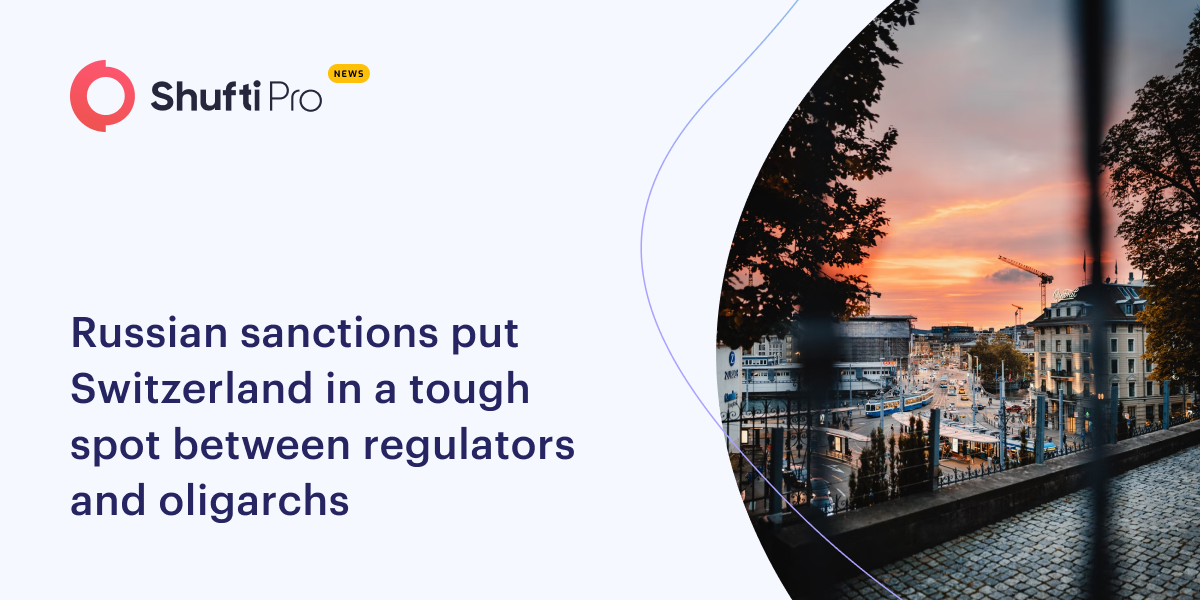 Explore More
Explore More
News
Shufti Unveils New Product NFC Verification for NFC Based Identity Verification
Shufti has launched a new product, NFC Verification, that uses Near Field Communication techn...
 Explore More
Explore More
News
Europol Convicts Israel-France Gang on $40 Million Money Laundering Plot
Europol’s joint investigation with French authorities has led to the dismantling of a Franco-Isra...
 Explore More
Explore More
News
ML/TF Legislation for Art Industry Labeled ‘Damaging and Unjust’
Cinoa, the international art & antiques dealers’ association has issued an open letter signed...
 Explore More
Explore More
News
Facial Recognition Market to Grow 12.5% Annually Through 2024
According to a new report by Mordor Intelligence, the facial recognition market is expected to gr...
 Explore More
Explore More
News
Two of Singapore’s Banking Giants Involved in Billion-Dollar Money Laundering Case
The two well-known banks in Singapore, Development Bank Singapore (DBS) and Overseas Chinese Bank...
 Explore More
Explore More
News
Economic uncertainty ‘a breeding ground for fraud and financial crime
The FATF has warned that the Coronavirus outbreak has caused unparalleled challenges in the econo...
 Explore More
Explore More
News
The Biggest Software Company in the US under Ransomware Attack on Election Night
Tyler Technologies in Plano, Texas, was under a ransomware attack last week. The company sells so...
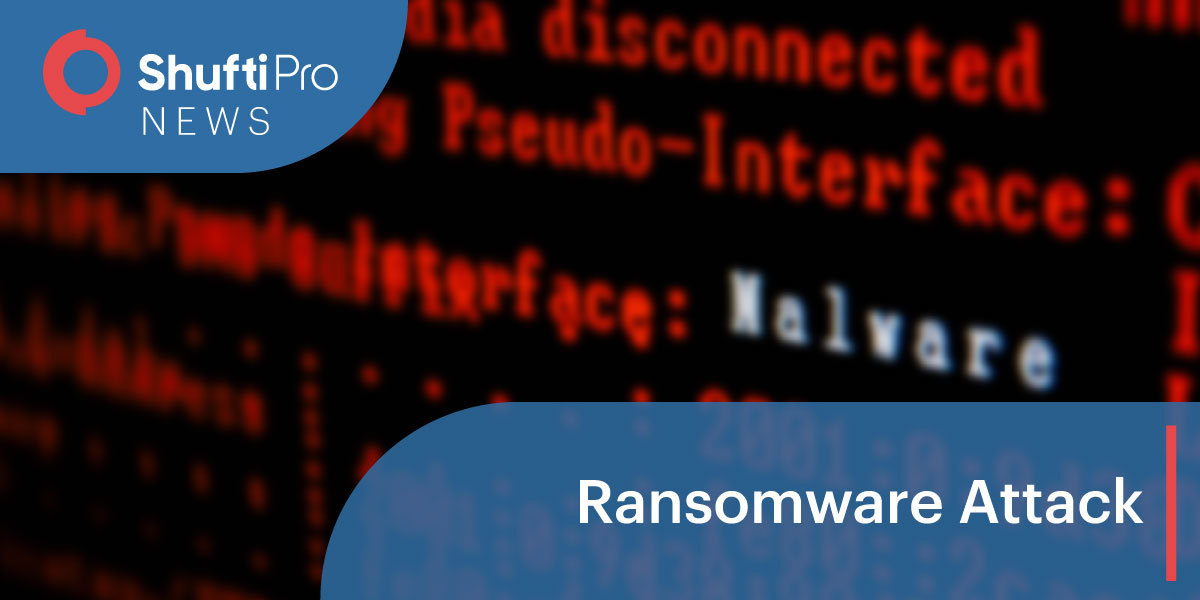 Explore More
Explore More
News
T-Mobile Suffers its Second Security Breach within Six Months
T-mobile US suffered its second data breach between late February and early March, affecting 836 ...
 Explore More
Explore More
News
US Blocks Tornado Cash Investors for Money Laundering Risks & Links to Korean Hackers
The United States has frozen the assets of crypto investors from Tornado Cash Service, saying it ...
 Explore More
Explore More
News
Ransomware attack targets Victoria Beckham’s personal data
Maze, the Ransomware gang strikes again. It seems that the victim this time is a US-based indepen...
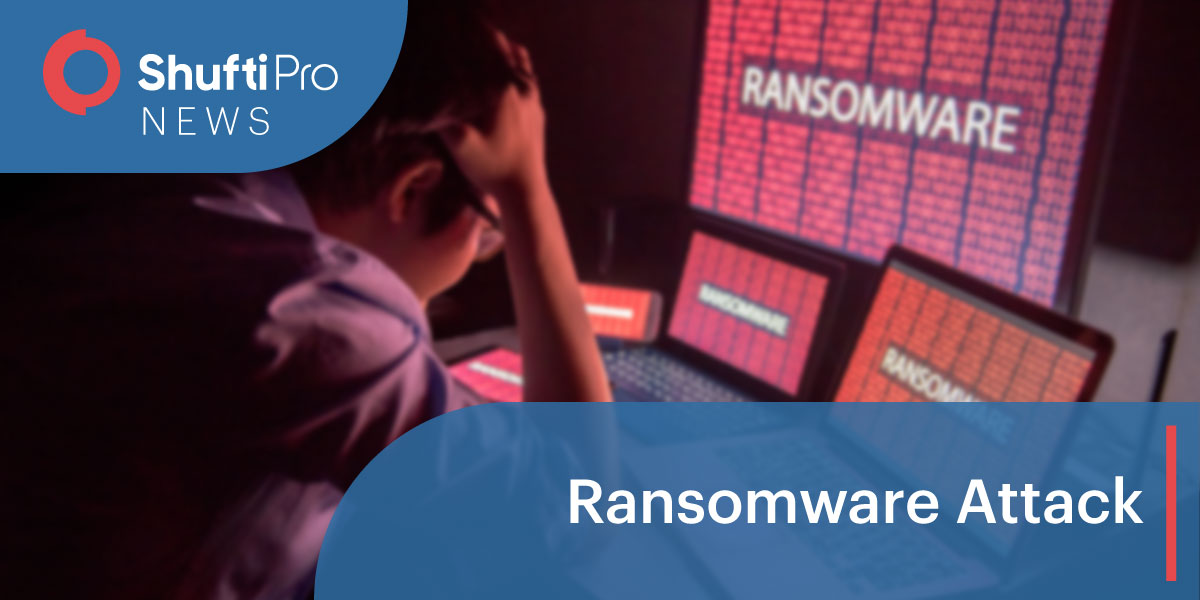 Explore More
Explore More
News
China’s Digital Currency Could Be Launched ‘Quite Soon’
Within the next 6 to 12 months, China could launch its own digital currency which may become a ch...
 Explore More
Explore More
News
Council of Europe Shows Support to Serbian Authorities For Combating Money Laundering
The Council of Europe stays dedicated to showing support to authorities for fighting money-launde...
 Explore More
Explore More
News
Crown Resorts Accused of ‘Serious and Systemic’ Money-Laundering Breaches
AUSTRAC has brought Crown Resorts to court as the casino breached anti-money laundering regulatio...
 Explore More
Explore More
News
HKMA Issues Guide for Regtech Adoption in Customer Monitoring
The second guide published by the HKMA will allow banks to test their internal measures and infra...
 Explore More
Explore More
News
The Financial Intelligence Analysis Unit Levies Fines Worth €2.2 Million in the First Half of 2023
The Financial Intelligence Analysis Unit fined €2.2 million in the first half of 2023. A constitu...
 Explore More
Explore More
News
US Government to Establish New Corporate Transparency Act Regulations to Verify UBOs
The US government is ready to change the process of reporting beneficial ownership. The final rul...
 Explore More
Explore More
News
South African Government Passes Key AML and CFT Laws to Fight Financial Crimes
South African government passes two significant laws to implement Anti Money Laundering and Count...
 Explore More
Explore More
News
Australia, Singapore, Malaysia, and RSA Team Up for CBDC Trials
Central banking entities of Singapore, Australia, Malaysia, and South Africa agree on a mutual ag...
 Explore More
Explore More
News
AUSTRAC Outlines Common Reporting Mistakes at Industry Outreach Event
Australian regulator, AUSTRAC, highlighted important reporting errors in AML/CFT programmes of re...
 Explore More
Explore More
News
FCA Imposed a $1.05M fine on Barclays Bank for “Oversight Failings”
The U.K. Financial Conduct Authority (FCA) on Monday revealed that it imposed a fine of 783,800 p...
 Explore More
Explore More
News
Ireland Campaigns to make Dublin the EU AML Authority Headquarter
A team was established in the Department of Finance by the Irish government to campaign for Dubli...
 Explore More
Explore More
News
Gibraltar financial watchdog issues warnings for four crypto sites
The Gibraltar Financial Services Commission, or GFSC, on June 5th, issued four public warnings to...
 Explore More
Explore More
News
Canada Financial Crimes Agency Questioned on Effectiveness of Anti-Fraud Measures
Anti-fraud experts are reporting concerns regarding the Liberals’ newly announced Canada Financia...
 Explore More
Explore More
News
Facebook’s Calibra rebrands to Novi wallet
Facebook subsidiary and Libra wallet provider Calibra, has recently been rebranded to Novi. The n...
 Explore More
Explore More
News
UKGC imposed EUR 3.8 Million Fine on Genesis Global for Social Responsibility and Money Laundering Violations
After the two-year investigation, the United Kingdom Gambling Commission (UKGC) imposed EUR 3.8 m...
 Explore More
Explore More
News
Law firm Clyde & Co. fined $635K for Breaching UK Money Laundering Laws
Global law firm Clyde & Co. was fined £500,000 ($635,613) on 11 January for multiple breaches...
 Explore More
Explore More
News
BaFin Demands Deutsche Bank to Tighten its AML Controls
The financial regulatory authority in Germany, BaFin (Federal Financial Supervisory Authority) ha...
 Explore More
Explore More
News
EBA Restricts Diamantaires from Banking Services to Curb ML/TF Risk
Financial institutions restricting diamond dealers from banking services to comply with EU’s 2015...
 Explore More
Explore More
News
UK Authorities Accuse Attorneys of Failure in Combating Financial Crimes
The UK regulatory authorities asserted that new data revealed prosecutors inadequately comply wit...
 Explore More
Explore More
News
Colombian Financial Crime Unit Detects $20 Billion Potentially Linked to Money Laundering
Colombia’s Financial Crimes Unit has detected $20 billion in financial operations that are potent...
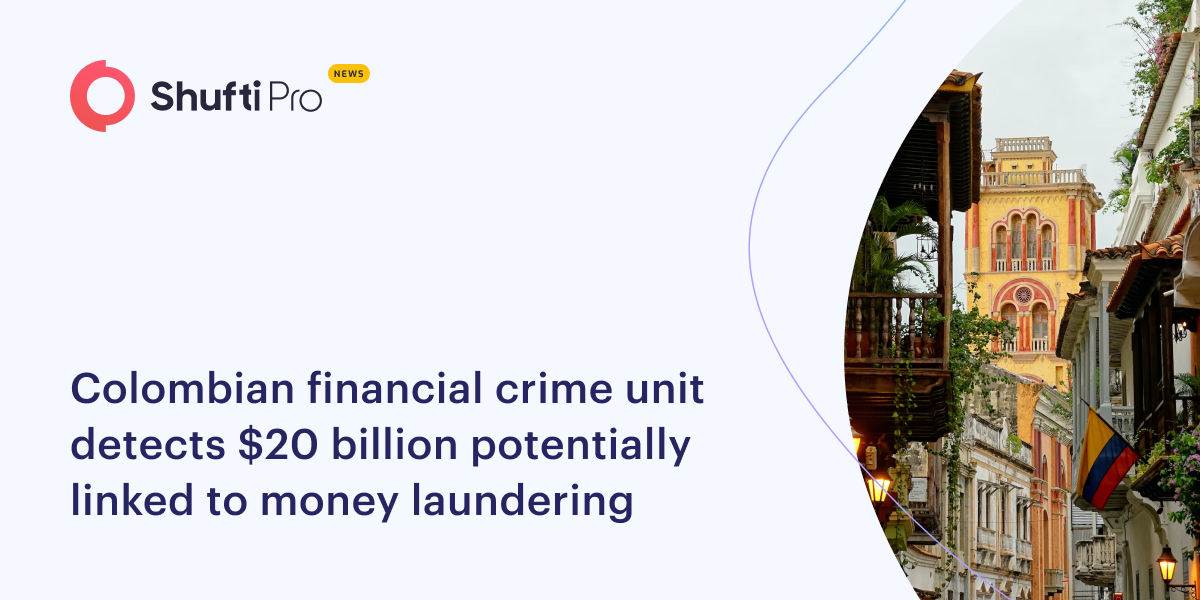 Explore More
Explore More
News
Scammers Set to Defraud this Holiday Season, FBI Warns!
This holiday season, New Mexican shoppers are at risk of facing scammers. Criminals are all set t...
 Explore More
Explore More
News
Brazil to Become a Part of OECD and Plans to Launch IPO for Its Digital Bank
During a virtual event on Tuesday, Paulo Guedes, Brazil’s Minister of Economy, announced that the...
 Explore More
Explore More
News
Europol Releases First Financial and Economic Crime Report
Europol has published its first-ever threat assessment report on financial and economic crimes, h...
 Explore More
Explore More
News
UK MPs Call for Improved Crypto Regulations to Prevent Losses
Ministers of the UK Parliament are calling for more rigid cryptocurrency regulations from the ASA...
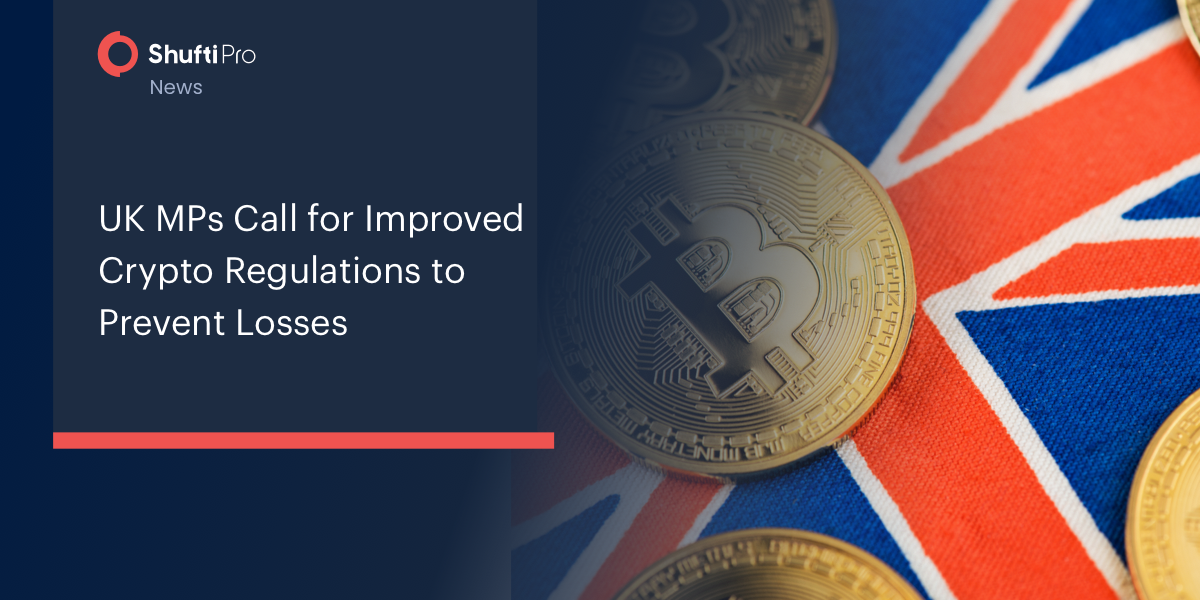 Explore More
Explore More
News
UAE Praises Singapore’s S$2.8b Financial Crime Bust
The director-general of UAE anti-money laundering and counter-terrorism financing commends Singap...
 Explore More
Explore More
News
The FATF Gives The Philippines 2-3 Months to Address Remaining Deficiencies
Chuchi G. Fonacier, Deputy Governor of the BSP, said 4 of the 8 remaining Financial Action Task F...
 Explore More
Explore More
News
Japan to Enforce Strict Anti-Money Laundering Laws on Cryptocurrency
A stringent set of anti-money laundering measures will be implemented in Japan starting June 1st,...
 Explore More
Explore More
News
UAE Issues Updated Targeted Financial Sanctions Guidance
The UAE has shifted from the multilateral United Nations Security Council (UNSC) sanctions to uni...
 Explore More
Explore More
News
Cybercrime to Surge in Cryptocurrency Even in Post COVID-19 Economy
According to a report by Kaspersky Lab about cybersecurity and antivirus, in the post-COVID-19 wo...
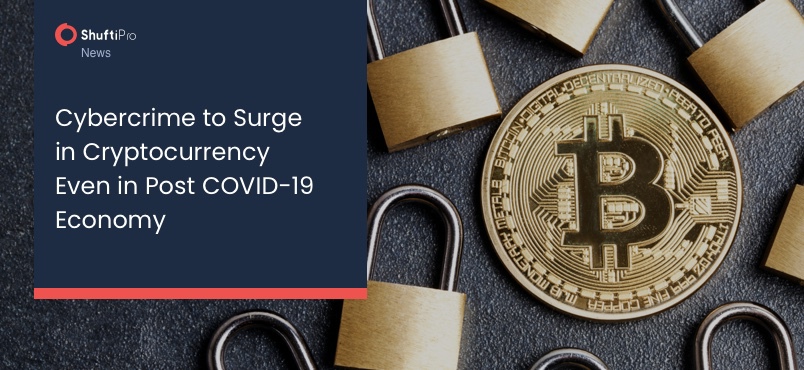 Explore More
Explore More
